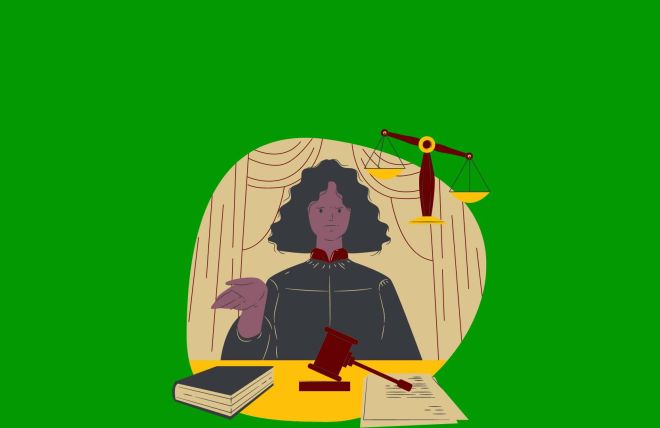What does a homeowners association do?
Homeowners Associations (HOAs) are a common feature of many residential communities in the United States. If you've ever considered buying a home in a planned development or a community with shared amenities, chances are you've come across the term HOA. But what exactly is an HOA, and what do they do?
In this comprehensive guide, we'll delve into the world of HOAs, exploring their roles, responsibilities, and the impact they have on homeowners. By the end, you'll have a clear understanding of what HOAs do and why they matter.
What Is a Homeowners Association (HOA)?
A Homeowners Association (HOA) is a private organization formed by residents within a specific community or housing development. Its primary purpose is to manage and maintain common areas and shared amenities, enforce community rules and regulations, and collect fees from homeowners to cover these expenses.
Roles and Responsibilities of HOAs
- Maintenance of Common Areas: One of the fundamental responsibilities of an HOA is to maintain and manage common areas within the community. These areas can include parks, swimming pools, fitness centers, and landscaping. HOAs ensure these spaces are well-kept and accessible to all residents.
- Enforcement of Community Rules: HOAs establish and enforce rules and regulations to maintain a certain standard of living within the community. These rules often cover issues like property maintenance, noise restrictions, and even architectural guidelines to preserve the community's aesthetics.
- Collection of Fees: HOAs collect regular fees from homeowners to fund their operations. These fees, often referred to as assessments, cover common area maintenance, security, and other services. The amount can vary widely depending on the community's amenities and services.
- Resolving Disputes: HOAs act as mediators in disputes between homeowners. Whether it's a disagreement over a shared fence or a noisy neighbor, the HOA can step in to find a resolution that aligns with community guidelines.
- Community Improvement: Some HOAs work on capital improvement projects, such as repaving roads, upgrading security systems, or adding new amenities like playgrounds or walking trails.
- Financial Management: HOAs are responsible for managing their finances. This includes budgeting, accounting, and maintaining a reserve fund for future expenses, such as major repairs or renovations.
Pros and Cons of Living in an HOA Community
Now that we've covered what HOAs do, let's explore the advantages and disadvantages of living in an HOA community:
Pros:
- Amenities: Many HOA communities offer attractive amenities, such as swimming pools, gyms, and parks, which can enhance your quality of life.
- Maintenance: HOAs handle maintenance tasks, so you don't have to worry about mowing the lawn or fixing the roof.
- Community Standards: HOAs enforce rules to maintain a clean, orderly, and visually appealing community.
- Dispute Resolution: They provide a structured process for resolving conflicts among neighbors.
- Curb Appeal: HOAs often enhance property values by maintaining a well-kept community.
Cons:
- Fees: HOA fees can be a significant monthly expense on top of your mortgage.
- Rules and Restrictions: Living under an HOA means abiding by their rules, which can limit your freedom as a homeowner.
- Mismanagement: Poorly managed HOAs can lead to financial issues and disputes among homeowners.
- Lack of Control: Homeowners have limited say in HOA decisions, which can be frustrating if you disagree with their choices.
- Additional Costs: Special assessments may be levied by the HOA for unexpected expenses, such as major repairs or legal fees.
- Limited Privacy: HOAs often have the authority to access your property for inspections and maintenance.
The Role of the HOA Board
The HOA board is a group of elected or appointed individuals responsible for overseeing the association's operations. The board's duties may include budgeting, rule enforcement, and decision-making regarding community matters.
Legal Framework and State Laws
HOAs operate within a legal framework set by state laws and the association's governing documents. These documents include the Declaration of Covenants, Conditions, and Restrictions (CC&Rs), which outline the rules and regulations that homeowners must follow.
State laws can vary significantly, affecting how HOAs operate. Some states have specific regulations governing HOA elections, fee collections, and dispute resolution. It's essential for homeowners to be aware of their state's laws and how they impact their HOA. For example:
- Navigating the Legal Requirements: HOA Websites in Nevada
- Understanding Florida Condo Website Law
- Texas POA Website Laws: A Guide to Online Info Requirements
Tips for Homebuyers Considering an HOA Community
If you're thinking about buying a home in an HOA community, here are some essential tips to consider:
- Review the CC&Rs: Carefully read the CC&Rs to understand the rules and restrictions within the community.
- Assess the Fees: Evaluate the monthly HOA fees and any special assessments to ensure they align with your budget.
- Participate in Meetings: Attend HOA meetings to stay informed about community matters and have a voice in decision-making.
- Research the Board: Learn about the HOA board's history and effectiveness in managing the community.
- Request Financials: Review the association's financial statements to ensure financial stability and transparency.
- Understand Dispute Resolution: Familiarize yourself with the dispute resolution process in case conflicts arise.
Conclusion
Homeowners Associations play a vital role in managing and maintaining residential communities, ensuring they remain attractive and well-maintained places to live. While they offer benefits like shared amenities and dispute resolution, they also come with rules and fees that may not suit everyone.
When considering a home in an HOA community, it's essential to weigh these factors carefully to determine if it's the right fit for your lifestyle and preferences. Whether you're drawn to the convenience of managed amenities or concerned about potential limitations on your property rights, understanding the role of HOAs is crucial to making an informed decision as a homeowner.







